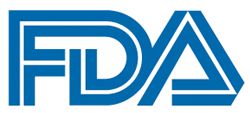Avelumab Approved by FDA for Bladder Cancer
An accelerated approval for the PD-L1 inhibitor avelumab (Bavencio) has been granted by the FDA for the treatment of patients with locally advanced or metastatic urothelial carcinoma.

The FDA has granted an accelerated approval to the PD-L1 inhibitor avelumab (Bavencio) for the treatment of patients with locally advanced or metastatic urothelial carcinoma with disease progression during or following platinum-containing chemotherapy, or within 12 months of neoadjuvant or adjuvant platinum-containing chemotherapy.
The approval was based on data from the urothelial carcinoma cohorts of the single-arm, open-label JAVELIN Solid Tumor trial, in which the overall response rate was 13.3% (95% CI, 9.1-18.4) among 226 patients who had been followed for at least 13 weeks, and was 16.1% (95% CI, 10.8-22.8) among 161 patients who had been followed for at least 6 months.
In the ≥6-month follow-up cohort, the 26 responses included 9 (5.6%) complete responses (CRs) and 17 (10.6%) partial response (PRs). In the ≥13 weeks follow-up group, the 30 responses included 9 CRs (4%) and 21 PRs (9.3%).
The median duration of response had not yet been reached for either arm and ranged from 1.4+ to 17.4+ months for both groups. The median time to response was 2 months (range, 1.3-11.0) for both groups.
PD-L1 expression was evaluable in 84% of patients across both cohorts. Among this population, there was no distinguishable variation in response rates based on tumor expression levels of PD-L1.
The JAVELIN Solid Tumor trial included 242 patients with locally advanced or metastatic urothelial carcinoma with disease progression on or after platinum-containing chemotherapy, or who had disease progression within 12 months of treatment with a platinum-containing neoadjuvant or adjuvant chemotherapy regimen.
The median patient age in the ≥13 weeks follow-up group was 68 years (range, 30-89), 72% of patients were male, and 80% were white. The ECOG performance status was 0 and 1 for 34% and 66% of patients, respectively.
Four percent (9/226) of patients had progressed after receiving prior platinum-containing neoadjuvant or adjuvant therapy only. Twenty percent of patients had received prior cisplatin and carboplatin-based regimens, 47% had only prior cisplatin-based treatment, and 32% had only prior carboplatin-based treatment. Liver metastases were reported in 34% of patients at baseline, and 17% of patients had hemoglobin below 10 g/dL.
Patients enrolled in JAVELIN received avelumab at 10 mg/kg intravenously every 2 weeks until progression or unacceptable toxicity. Prior to each avelumab administration, all patients received an antihistamine and acetaminophen.
The most common all-grade adverse events (AEs) were fatigue (41%), infusion-related reaction (30%), musculoskeletal pain (25%), nausea (24%), decreased appetite (21%), and urinary tract infection (21%).
The most frequent grade 3/4 AEs included hyponatremia (16%), fatigue (7%), anemia (6%), hypertension (5%), urinary tract infection (5%), and musculoskeletal pain (3%).
All-grade serious AEs occurred in 41% of patients, with the most frequent including urinary tract infection/urosepsis, abdominal pain, musculoskeletal pain, creatinine increased/renal failure, dehydration, hematuria/urinary tract hemorrhage, intestinal obstruction/small intestine obstruction, and pyrexia.
Avelumab was temporarily and permanently discontinued due to AEs in 29% and 12% of patients, respectively. AE-related deaths occurred in 6% of patients (n = 14), and were due to pneumonitis, respiratory failure, sepsis/urosepsis, cerebrovascular accident, or gastrointestinal AEs.
The accelerated approval of avelumab for this indication is contingent on results from a confirmatory trial.
The ongoing phase III JAVELIN Bladder 100 trial (NCT02603432) is evaluating avelumab in the first-line setting as a maintenance treatment in patients with locally advanced or metastatic urothelial carcinoma.